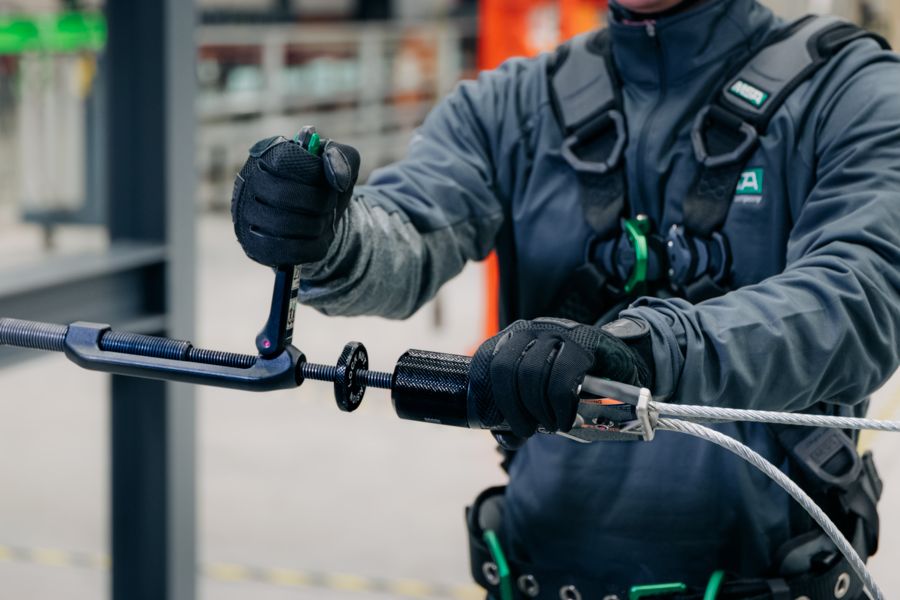
The Rise of Remote Closing in the Digital Era
In today’s fast-changing digital world, businesses are no longer limited to traditional face-to-face sales. The rise of virtual selling has created a new breed of professionals known as remote closers—skilled communicators who seal high-value deals from anywhere in the world. This transformation has given rise to the demand for comprehensive training through a remote closer course. As companies move their operations online, they seek professionals who understand how to navigate the virtual sales landscape with authenticity and precision.
Remote closing has become one of the most profitable career paths for individuals who want freedom, flexibility, and financial growth. It’s not just about talking to prospects over Zoom—it’s about mastering the psychology of persuasion, understanding buyer motivation, and confidently presenting high-ticket offers. With the right remote closer course, learners gain the knowledge and tools needed to thrive in an increasingly competitive global marketplace.
The digital economy has opened doors for anyone with the right mindset and training. Whether you’re transitioning from traditional sales or starting fresh, this profession offers a rare combination of independence and income potential. The more you learn about remote closing, the more you realize it’s a skill that rewards communication mastery and emotional intelligence over corporate credentials.
What a Remote Closer Course Really Teaches
A remote closer course goes far beyond teaching you how to “sell.” It focuses on developing a deep understanding of human behavior and emotional triggers that influence purchasing decisions. Through structured training, learners discover how to identify pain points, connect authentically with clients, and lead conversations toward positive buying outcomes.
These courses are designed to teach the art and science of persuasive communication. Students explore how to build trust over video calls, handle objections with empathy, and craft value-driven messages that resonate with potential buyers. It’s a balance of psychology, strategy, and confidence—all crucial for high-ticket selling.
A high-quality program helps participants:
- Develop an understanding of the buyer’s decision-making process
- Build rapport quickly and authentically in a virtual environment
- Learn objection-handling frameworks that drive conversions
- Use proven closing scripts while maintaining a natural tone
- Stay motivated and consistent when working independently
Ultimately, a remote closer course empowers you to transform conversations into opportunities. It teaches you how to make sales interactions less transactional and more relational, leading to stronger results and higher earnings.
Essential Skills Every Remote Closer Needs
Success in remote closing depends on mastering a combination of technical, emotional, and communication skills. These abilities help you connect with potential clients in a genuine and results-oriented way. Emotional intelligence stands at the core—understanding how to read tone, emotion, and hesitation even without physical cues is key to effective virtual selling.
Active listening plays a huge role as well. Instead of focusing solely on the pitch, skilled closers listen carefully to what clients say—and what they don’t. This allows for a personalized approach to addressing needs and overcoming objections. In addition, resilience and confidence are essential traits for thriving in an environment that demands adaptability and persistence.
Other essential skills include:
- Effective time management for handling multiple leads daily
- Mastery of CRM systems and digital communication tools
- Negotiation techniques that promote win-win deals
- The ability to follow up and nurture relationships long-term
A remote closer course nurtures these competencies through repetition, coaching, and feedback. The result is a professional who can perform efficiently and consistently while maintaining a human touch in every interaction.
Key Components of a High-Quality Remote Closer Course
Not all courses are created equal. A strong remote closer course includes elements that go beyond theory—it’s about hands-on learning and practice. One key feature is personalized mentorship, where participants work with experienced closers who offer feedback on calls and help refine strategies. This direct coaching accelerates skill development and builds confidence.
Role-playing simulations are another cornerstone of effective training. These exercises recreate real-world selling scenarios, allowing learners to experience the dynamics of closing high-ticket deals. Through these interactive sessions, students can practice everything from discovery calls to final closings.
A comprehensive course should also offer:
- Live group sessions and real-time Q&A
- Recorded sales call breakdowns for practical learning
- Training on CRM platforms and automation tools
- Progress tracking and accountability systems
By combining theoretical foundations with active learning, these programs ensure students are not just informed but ready to perform in actual client environments. The goal is to create sales professionals who can confidently deliver measurable results.
Step-by-Step Learning Path: From Beginner to High-Ticket Closer
A well-structured remote closer course follows a learning path that builds skills progressively. The foundation begins with understanding how sales funnels work and identifying the stages where a closer adds the most value. Once students grasp lead qualification and pipeline management, they move into communication mastery and pitch creation.
The intermediate phase focuses on handling objections, reading buyer psychology, and structuring high-ticket offers. This stage is where learners begin applying theory to real conversations and learn to adjust strategies depending on client responses. By the advanced phase, participants are trained in high-stakes closing, long-term client retention, and performance optimization.
Certification at the end of the course adds a professional edge. It demonstrates mastery of remote sales techniques and boosts credibility in the job market. The certification also signals to potential employers or clients that the graduate has undergone formal training aligned with current sales industry standards.
Choosing the Right Remote Closer Course for Your Career Goals
When selecting a remote closer course, it’s important to look for programs that align with your career vision and preferred learning style. Not every course suits everyone, so defining your goals first will help narrow your options. Whether you aim to work for a high-ticket coaching company or as a freelance closer, choose a program that supports that direction.
Researching the course provider’s background is essential. Look for trainers with proven experience in real-world closing and verifiable results. Course reviews, testimonials, and alumni outcomes can give you insights into the program’s effectiveness. Avoid programs that promise unrealistic income results without demonstrating practical skills development.
Before enrolling, evaluate key factors such as:
- Whether the course offers one-on-one mentorship
- The length and format of the training (live vs. recorded)
- Access to community support or networking groups
- Post-certification opportunities for job placement or freelancing
A credible remote closer course provides clear outcomes, measurable progress, and continued support even after certification. This ensures that graduates are prepared for success in the real-world sales environment.
How Remote Closing Courses Boost Your Income Potential
The earning potential in remote closing is one of its biggest attractions. Professionals trained through a remote closer course often earn commissions based on the value of deals they close. This means income grows directly with skill and performance. Experienced closers who handle high-ticket sales often earn five to six figures monthly, depending on the niche and commission structure.
Beyond financial rewards, remote closing offers flexibility unmatched by most traditional jobs. You can work from anywhere, collaborate with international clients, and choose the offers or products you’re most passionate about selling. The better your skills, the more leverage you have in selecting projects and negotiating compensation.
As your experience and reputation grow, so do your opportunities. Many top closers eventually build teams, start their own agencies, or coach others in mastering the art of virtual sales. It’s a profession that not only pays well but evolves with your personal growth and ambition.
Frequently Asked Questions (FAQ)
What is a remote closer course, and who is it for?
A remote closer course trains individuals to sell high-ticket products and services online. It’s ideal for aspiring sales professionals, freelancers, and anyone seeking a flexible, performance-based career.
How long does it take to complete a remote closer course?
Most programs range from a few weeks to several months, depending on whether they’re self-paced or instructor-led.
Do I need prior sales experience to enroll?
No, many beginners start with little to no sales background. The course is designed to build foundational skills from scratch.
How much can a remote closer earn after training?
Income varies based on performance, but many trained closers earn commission-based pay that can exceed traditional salaries.
Are remote closing jobs in demand in 2025 and beyond?
Yes. With more companies operating online, the need for skilled remote closers continues to rise across industries.
Takeaway
Enrolling in a remote closer course can open the door to one of the most dynamic and rewarding careers in the digital economy. It equips you with the mindset, skills, and techniques needed to succeed in a virtual sales environment while enjoying freedom and flexibility. With dedication and practice, you can turn your ability to communicate and connect into a profitable, purpose-driven profession that thrives in the modern business world.


